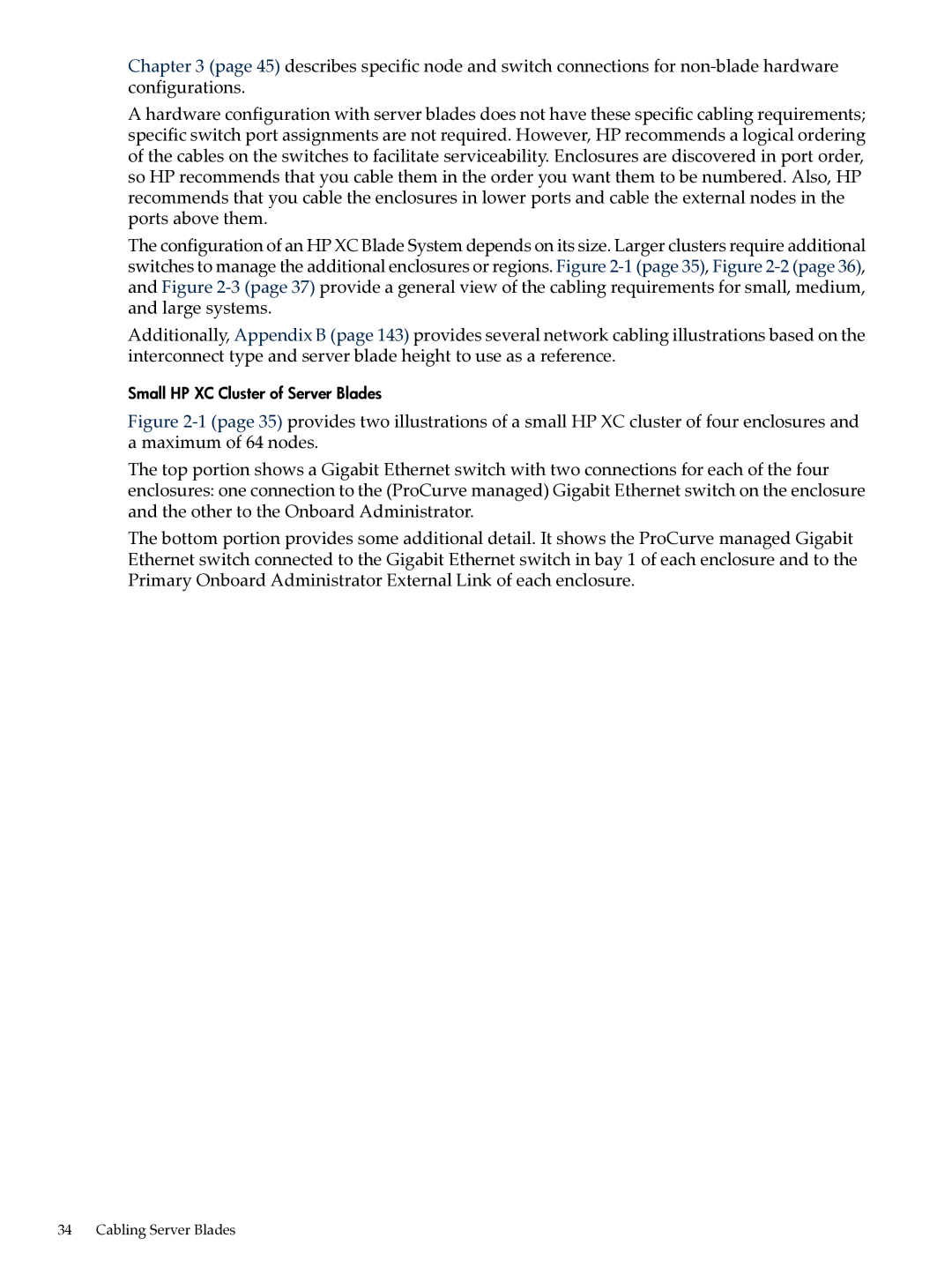Chapter 3 (page 45) describes specific node and switch connections for
A hardware configuration with server blades does not have these specific cabling requirements; specific switch port assignments are not required. However, HP recommends a logical ordering of the cables on the switches to facilitate serviceability. Enclosures are discovered in port order, so HP recommends that you cable them in the order you want them to be numbered. Also, HP recommends that you cable the enclosures in lower ports and cable the external nodes in the ports above them.
The configuration of an HP XC Blade System depends on its size. Larger clusters require additional switches to manage the additional enclosures or regions. Figure
Additionally, Appendix B (page 143) provides several network cabling illustrations based on the interconnect type and server blade height to use as a reference.
